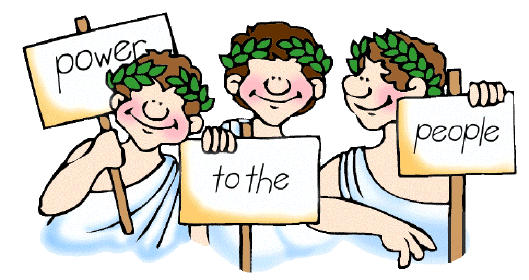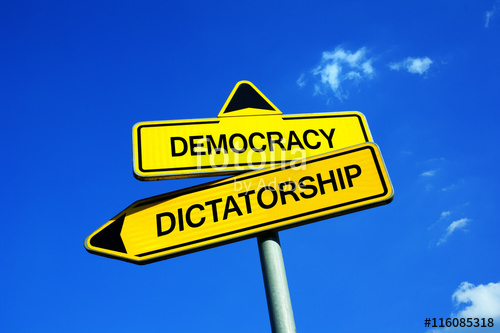Illiberal choices too are democracy in action, just not the kind we want

I’ll tell you what I don’t understand about democracy nowadays. The way we talk about it. Why do we always say an illiberal choice is undemocratic? Illiberal though it may be, it is still democratic for people to make bad choices.
Obviously, those bad choices might mean the eventual end of any future attempts by a lot of people to pick and choose (bad or good things). But those initial bad choices were part of the exercise of democratic power. They were democracy in action.
It is democratic for people to pick ugly options and you know what I mean by ugly. Bigoted politicians. Those who promise to build a wall. Leaders who lob gobs of abuse at whole communities of people that look a bit different from them (and from their base voters). An Austrian party founded by the Nazis.
Let’s consider some of the people we might be talking about:
Donald Trump (and his vice-presidential running mate J D Vance)
Herbert Kickl
Björn Höcke
Marine le Pen
Jordan Bardella
Narendra Modi
Geert Wilders
All of the above are either running or recently ran for election.
Except for Mr Trump and Mr Vance, whose yoked political fate will be decided by voters at the end of the US election season, ie November 5, the other politicians have already proved they have a sizeable following.
In Austria, Mr Kickl led his far right Freedom party (FPÖ) to victory of a sort. The party won the most votes in an Austrian election for the first time since the Nazi era on September 29. With 29.2 per cent of votes, FPÖ beat the ruling ÖVP of the chancellor Karl Nehammer into second place. Mr Kickl’s party rode a tide of public anger over migration and the cost of living.
Barely a month before Austria, a regional election in Germany showed something similar. On September 1, Mr Höcke led his Alternative for Germany party to a big victory in the eastern state of Thuringia. It was the first win in a state parliament election since World War II for a political force described as far right and which has been designated right-wing extremist by the security services.
Step further back in time, and there’s France. Ms le Pen’s National Rally (RN) party, which was widely tipped to win the June-July snap parliamentary elections, was eventually beaten into third place by the left and by President Emmanuel Macron’s centrists. But it was considered to pose a sizeable threat, enough to cause more than 200 candidates, mainly from the left alliance and the Macron camp to drop out of the race to help their political rivals defeat RN. Jordan Bardella, RN’s 28-year-old president, later said that “unnatural political alliances” stopped his party’s rise to power.
In India, Mr Modi’s BJP-led coalition government recently marked its first 100 days (on September 17th). Although analysts saw the election result – which forced the BJP into a coalition – as a defeat for Hindu nationalism, it’s worth remembering the BJP still controls more seats in parliament than its main national rival, Congress, did when it led coalition governments from 2004 until 2014.
As for Mr Wilders, his far-right PVV won a quarter of the national vote in the Netherlands’ election in November 2023. PVV now leads a four-party coalition in government, which was only able to be formed by Mr Wilders agreeing not to insist on the role of prime minister.
The upshot is that all of the above represent a democratic decision by the people…to pick some version of illiberalism!



